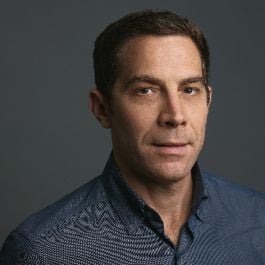As the energy crisis wound on, many entrepreneurs paused plans and delayed dreams — but not David Klein. It was the summer of 1976, and Klein had a lot going for him. The California resident and professional confections distributor had 300 pounds of jelly beans and a storefront location. He just needed some customers.
Klein took matters into his own hands. He begged an Associated Press writer to bring a photographer to the store on opening day. He then called his friends and family members, stuffed cash into their fists and lined them up to pose as crazed devotees anxiously awaiting his grand opening.
The gamble paid off. Customers, fearful of missing out on something new, rushed to the store to place orders for Klein’s gourmet jelly beans. Just five years later, Klein would be shipping 7,000 pounds of red, white and blue Jelly Belly jelly beans to the White House at the request of its most important occupant.
Built In loves seeing the chutzpah ooze when a salesperson goes above and beyond to close a deal. The younger ones often come in with high energy, raw talent and big expectations. Here’s what three local leaders told us about what it takes to be a better coach and partner with reps to make a true impact.
Canva is an online design and publishing platform that provides user-friendly design tools for non-designers.
Describe your role as a sales coach. How did your career journey lead you to that position?
I’m focused on developing my team and empowering them to grow their knowledge and skills. One of Canva’s core values is “Set Crazy Big Goals and Make Them Happen.” Goal setting is essential to the work we do in sales. My approach is to establish targets, track progress and develop action plans to empower the team to exceed its targets. It’s important to help the team reduce its goals to clear, quantifiable steps.
Providing actionable and detailed feedback is also a big part of my role, and that usually starts with reviewing success metrics. We talk through what went well and what we wish we had done differently. We also discuss whether we achieved our goal. Developing a winning culture has always been a motivator of mine. Helping someone fight for a win or develop a new skill is rewarding. I always try to make it a point to learn something different from the people I work with, too, because everyone has a unique perspective to add!
What separates a good sales coach from a great one? Are there certain skills all great sales coaches have?
A good sales leader can impact their team while a great sales leader can impact an organization.
A good sales leader can impact their team while a great sales leader can impact an organization.”
All of the great ones have superpowers that help them stand out from the rest, but the common denominator I’ve noticed is excellent communication. They’re usually great active listeners and communicators.
Describe a time when sales coaching made all the difference in a rep's performance. What impact did this have on the business?
I had a team member who was feeling overwhelmed and caught up in the whirlwind of their business. We both agreed that this was due to improper time management. I know that most sellers need coaching to improve, so we broke down their measures of success and created small and manageable milestones. We then agreed on what their week should look like and adjusted their calendar accordingly. This practice gave the individual ownership of their role and helped build an operating rhythm for them. It also led to a better work-life balance, increased confidence and a more narrowed focus.
The results were positive as meeting preparation and forecast accuracy improved. The seller surpassed their target and recovered their confidence in the job! They also led training sessions. Others received support while the seller seized the opportunity to further their own leadership development.

MVF Global provides customer generation for some of the world's largest companies in over 40 different countries.
Describe your role as a sales coach. How did your career journey lead you to that position?
I worked my way through the ranks as an individual contributor before taking the leap into team management. I had found myself coaching peers and was excited to explore that in an official capacity. Since then, I've loved coaching different salespeople in various roles at MVF. It's an extremely rewarding part of my work and it's great to see people develop into successful reps. Our sales leadership team at MVF is largely made up of people who have been really successful as individual contributors. I'm a big fan of learning from experience, and we absolutely adopt that mantra here.
What separates a good sales coach from a great one? Are there certain skills all great sales coaches have?
Great sales coaches roll up their sleeves and show their team the way by jumping on calls and supporting negotiations. They also give room for reps to contribute their own ideas, find their style and make mistakes.
Great sales coaches roll up their sleeves and show their team the way by jumping on calls and supporting negotiations.”
Listening is a big part of coaching. Coaching isn't telling someone what to do — it's working with them to produce an action plan after investigating what they need and where they can improve.
Finally, a great sales coach is adaptive. Not everyone has the same strengths and weaknesses. Leaders who can adapt to the person they are coaching will drive the best outcomes.
Describe a time when sales coaching made all the difference in a rep's performance. What impact did this have on the business?
I believe that proper coaching requires a different approach based on each team member’s experience and ability. Last year, we had a new salesperson who came in with a wealth of experience but only a minimal understanding of our industry. My initial interactions with him focused on listening to him to understand his communication style and his approach to prospecting. I was attempting to identify his potential blind spots while asking how he would tackle certain tasks. We were able to fast-track his onboarding as our coaching interactions quickly became less directional and more delegatory. He finished last year as one of our top reps based on self-generated new business!

Mothership is disrupting the world of freight delivery by using technology to streamline logistics and enhance efficiency.
Describe your role as a sales coach. How did your career journey lead you to that position?
In my capacity as a sales coach, my primary responsibility has always been to guide, mentor and empower sales representatives to maximize their potential. This role isn't just about teaching techniques but also instilling an understanding of the deeper rationale behind every strategy.
My journey into sales was quite challenging. When I began, I felt like I was thrown into deep waters and expected to swim without adequate training. I had to find ways to learn as I rose through the ranks and landed atop the sales leaderboard. Many of the managers I encountered along the way emphasized independent reading but rarely provided the hands-on guidance I yearned for.
This lack of mentorship drove my determination to ensure no one on my team would ever feel unsupported. I firmly believe that an effective manager should not only impart the technical know-how of selling but also elucidate the reasons behind each methodology. The "how" is crucial, but understanding the "why" is what truly transforms a salesperson's approach to take them beyond efficient to deeply effective.
What separates a good sales coach from a great one? Are there certain skills all great sales coaches have?
What separates a good sales coach from a great one is their ability to balance brutal honesty with encouragement. While many might shy away from providing critical feedback, I firmly believe in the importance of rigorous critique during coaching sessions.
While many might shy away from providing critical feedback, I firmly believe in the importance of rigorous critique during coaching sessions.”
Without this, there's a potential gap in the growth and improvement of the team. A great coach isn't just there to celebrate the wins. They must also dissect every successful and unsuccessful call to identify areas of enhancement. It's this unwavering commitment to pushing beyond complacency and constantly striving for improvement that distinguishes a great sales coach.
Describe a time when sales coaching made all the difference in a rep's performance. What impact did this have on the business?
I once inherited an account executive who was one of the lowest performers. Despite their drive, they lacked proper guidance. I took them under my wing, analyzed their sales calls, refined their strategies and provided feedback. Within a few months of this intensive coaching, their performance skyrocketed. By the next quarter, they became the top salesperson in the company. This transformation not only boosted our revenue but showcased the power of focused coaching. Today, that individual holds a leadership role in another successful company. This is a testament to how dedicated coaching can change career trajectories.












